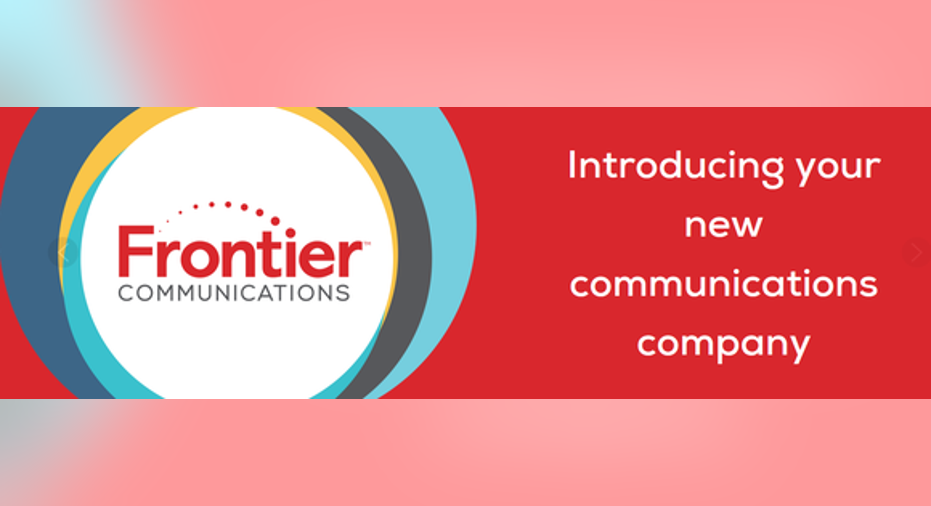Frontier Communications Corporation's Biggest Win in 2016 So Far

Image source: Frontier Communications.
For years, Frontier Communications (NASDAQ: FTR) languished in the background of the telecom industry, with its focus on basic services making it less attractive than the high-profile national wireless carriers and their fast-growing networks. Yet Frontier has worked hard to make strategic acquisitions to become a bigger player in the telecom industry. In its pursuit of growth, Frontier's acquisition earlier this year of Verizon (NYSE: VZ) assets in Florida, Texas, and California marked a huge step forward for the company. Although it's too early for investors to evaluate Frontier's success in executing on the potential involved in the transaction, just having the opportunity at all is a big win for Frontier as part of its acquisition-based strategic vision. Let's look more closely at Frontier Communications and what the Verizon deal accomplished.
What the Verizon deal involves
Frontier and Verizon first announced their pending deal in Feb. 2015, but it took more than a year for the companies to get final approval to move forward with the transaction. The size of the acquisition explains much of the delay, and Frontier faced the challenges of dealing with a huge population of new customers in major metropolitan areas throughout three of the largest states in the nation.
Under the deal, Frontier stood to double its size. Verizon's wireline operations in the three states included 3.7 million voice connections, 2.2 million broadband connections, and 1.2 million FiOS video connections. More than half of the overall network assets acquired was FiOS-enabled, giving Frontier a chance to expand its penetration in those markets even further toward higher-margin services. In particular, Verizon had invested more than $7 billion in building out FiOS, and so the $10.5 billion purchase price that Frontier agreed to pay came with considerable sunk costs that the smaller telecom hoped to use to its advantage.
Frontier had to work hard in order to find the money to make a deal of this size, but its efforts paid off. The company ended up making a $2.75 billion equity offering, and it announced various forms of debt financing as well, including a new $1.5 billion term loan agreement that reduced the amount of high-yield bonds it needed to raise through public offerings. In the end, Frontier tapped the credit markets for $6.6 billion in five- to 10-year notes, with interest rates fetching between 8.875% and 11%. Once the two companies got the OK from regulators, the deal officially closed on April 1.
What Frontier needs to do to make the deal a long-term win
Frontier's first task was ensuring a smooth transition for Verizon's former customers. The company believed that its past experience with acquiring customer networks would serve it well, and a previous acquisition from Verizon had Frontier already familiar with the particulars of providing FiOS service. Yet even before the deal closed, Frontier had finished last among telecom companies in terms of providing good customer service, according to one popular survey.
Unfortunately, Frontier hasn't been successful in getting through the move without major hitches. Some news services described the transition as "nightmarish," citing telephone and internet outages that lasted for more than a month after the switch. In particular, several areas in Southern California and North Texas as well as the Tampa Bay area of Florida were especially hard-hit by outages. Hundreds of complaints have gone to utility regulators. Frontier has tried to downplay the problems, noting that they've had minimal financial impact thus far.
The bigger question, though, is whether customers in Texas, California, and Florida will continue to stick with Frontier through tough times. As competitive options expand, Frontier can't count on the monopoly like environment that once made having primary responsibility over a region of the country so valuable. If it can't improve its execution, then what looked like a big win for Frontier could easily turn into a costly lost opportunity.
For now, Frontier shareholders are hopeful that the telecom company can use the Verizon acquisition as a stepping stone toward even larger growth down the road. If the company can give customers the service and benefits they want, then Frontier could well look back on the 2016 closing of the Verizon deal as a landmark event in its corporate history that will have positive impacts for years to come.
A secret billion-dollar stock opportunity The world's biggest tech company forgot to show you something, but a few Wall Street analysts and the Fool didn't miss a beat: There's a small company that's powering their brand-new gadgets and the coming revolution in technology. And we think its stock price has nearly unlimited room to run for early in-the-know investors! To be one of them, just click here.
Dan Caplinger has no position in any stocks mentioned. The Motley Fool owns shares of and recommends Verizon Communications. Try any of our Foolish newsletter services free for 30 days. We Fools may not all hold the same opinions, but we all believe that considering a diverse range of insights makes us better investors. The Motley Fool has a disclosure policy.



















